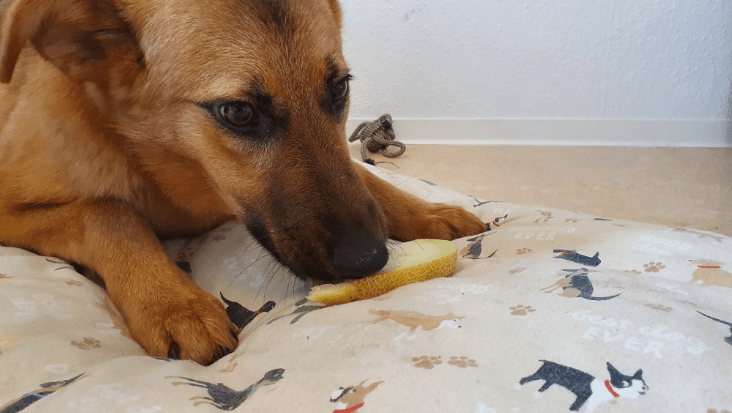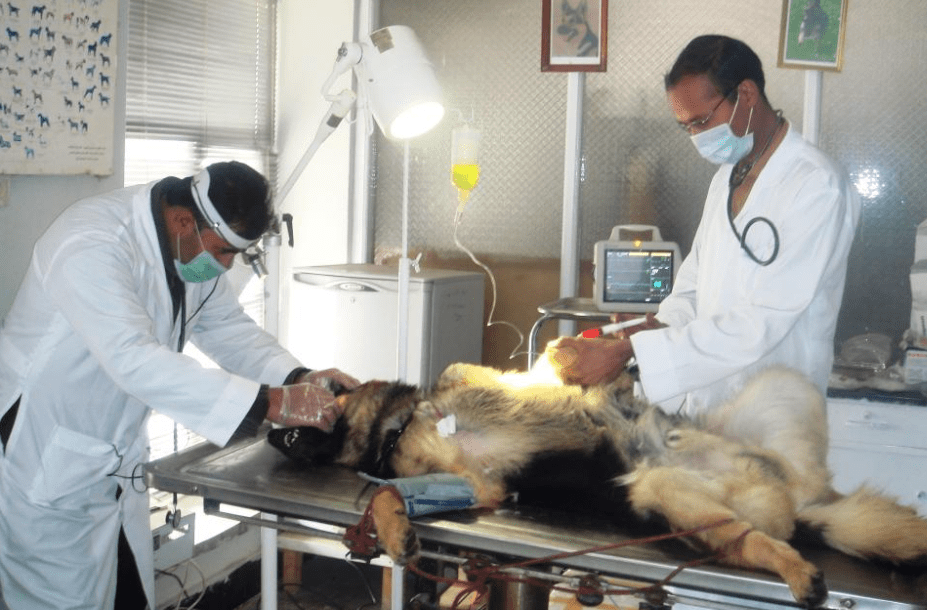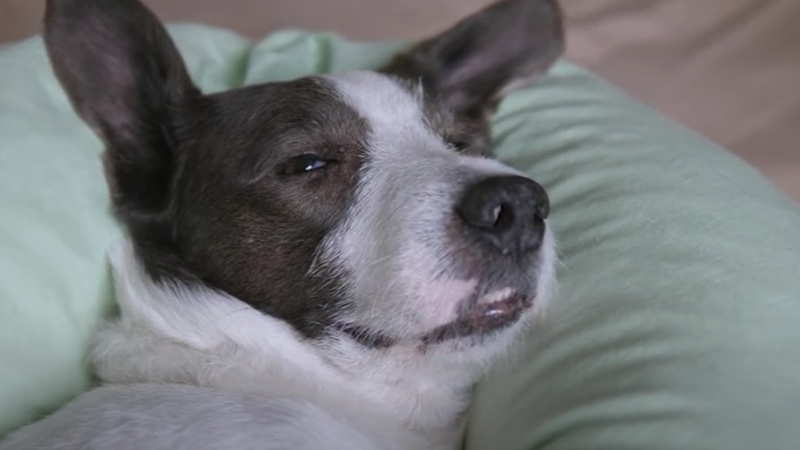Why does my dog keep gagging? If you are raising a fur baby, you know that gagging is one of the most common problems dog owners face. It can happen at any time and place, so knowing how to deal with it calmly is crucial to saving your dog in time.
Dogs that gag have swallowed something that is irritating or toxic to their stomachs. The best way to eliminate this problem is to immediately bring your dog to the vet. It’s unsafe to induce vomiting if your pet only gags slightly, as it can cause your dog to choke and put it in danger. On the other hand, massaging your dog’s throat lightly can be an excellent initial at-home treatment.
Common Causes Of Gagging In Dogs
Knowing the reasons behind your dog’s gagging will lead you to the correct treatment for your dog. Here are the most 3 common cases of gagging in fur buddies.
Overeating
Just like a human or any other animal, overeating can cause your dog to gag because its stomach is too full. The digestive system doesn’t work fast enough to dissolve the food, so it has to escape elsewhere. When the food starts coming back up, this triggers the pharynx to contract at the back of the throat, thus causing a gag reflex in your dog.
Strange object in stomach
It’s not rare for dogs to swallow things they aren’t supposed to swallow. A tennis ball, a remote control, a piece of bone, a small toy, etc., can be the reason behind your dog’s constant gag reflex these days. Check around the house for objects that your dog usually pay attention to. If it has disappeared from thin air…it’s time to visit the vet.

Inflammation of larynx
When a dog gags and coughs simultanously, we are looking at laryngeal dysfunction. The larynx no longer shuts adequately, making food enter the respiratory system. Another symptom of laryngeal dysfunction is extremely loud and forceful panting. The owner may not realize this condition at the initial phase because the signs are much more subtle. But the disease quickly worsens over time.
How To Stop Gagging In Dogs
Gagging isn’t equal to choking. It is much less severe and can be treated from home if the symptoms aren’t too severe. If you notice your dog having a gag reflex soon enough, follow these steps:
- Step 1: Identify the reason behind the gags. It can be due to food, toys, or disease. This will help you decide better on how to treat your lovely pet.
- Step 2: Call the vet and explain the problem carefully to receive instructions and ask if you should induce vomiting in your fur buddy. We recommend calling only if you are sure the gag reflex doesn’t originate from something too dangerous. If you believe that the cause is severe, take the dog directly to the vet to have it treated.
- Step 3: If the vet confirms that you must/ should provoke your dog to vomit, try one of these tricks: massage the base of the throat of your dog lightly; give your dog hydrogen peroxide (solicit the vet for amount recommendation); give your dog a small amount of wet food in a short amount of time so it can vomit naturally
- Step 4: Give your dog a bit of water and don’t feed it again yet. Let the fur buddy rest for a while before giving it food (preferably wet). Consult the vet for further instruction in terms of diet.

When To Call Your Veterinarian
If you see any of these signs, call your vet immediately:
- Loss of appetite
- Vomiting
- Diarrhea
- Abdominal pain
- Difficulty in breathing
- Weight loss
- Seizures
- Difficulty in walking
- Difficulty in eating
- Any swelling or lumps
In general, it’s recommendable to call your veterinarian whenever you find your dog in a strange condition. Of course, dogs’ vomiting is normal and shouldn’t be too serious. But making a phone call to the vet when you notice abnormal behaviors are more than welcome to ensure that the pet gets treated in time.
Always consult the vet first before you conduct any homemade treatment. Your fur buddy’s weight and age may require him to receive a different kind of care, whether he has gag reflex, gas, abdominal pain or restriction in movement.
FAQs
Why does my dog keep gagging after drinking water?
If your dog gulps water too quickly, the water enters the respiratory tract incorrectly. As a result, it may cause the airway muscles to constrict, resulting in a gag reflex. Or, maybe your dog has overeaten, and the added amount of water causes gas reflux, which provokes gaging.
Why does my dog keep gagging Without not throwing up?
Whatever it is that is causing your dog to gag hasn’t passed the esophagus just yet, but it still causes the throat to contract, thus leading to gagging. You can gently rub your dog’s throat to make it throw up if necessary.
What is the most typical reason for a dog’s gagging?
Overeating or swallowing something wrong are the 2 most common reasons for a dog’s gagging. Luckily, these problems can be dealt with from home if not too severe. If you suspect your dog swallowed something sharp, visiting the vet will be wise in this case.
How do I gradually treat my dog’s gag reflex?
Some tricks to stop gagging in dogs are:
– Changing the food brand for your dog if he/she is sensitive to any ingredient
– Changing the food texture from wet to dry, and vice versa
– Chop the food into smaller pieces, so he/she doesn’t choke
How much does it cost treat dog’s gagging?
The cost of your dog’s treatment will be determined by the underlying reason of their gagging and the vet facility. An intestinal parasite infection often costs $300 to cure. The average cost of treating kennel cough is $250.
Final Thought About “Why Does My Dog Keep Gagging”
In conclusion, knowing what can cause gagging in dogs is important. When your dog has a problem with the throat, it is essential to have it checked by a vet and understand the causes of gagging in dogs. Calling the vet is recommended in all cases!
Interested in knowing how much your dog can remember? Check out this article!

Victoria has always loved pets. Watching the animals at the zoo was her favorite thing. Her first volunteer job was at the local animal shelter, Gateway Area Humane Society. It was fun to spend time with all the animals.
Victoria M. Pierce decided to pursue a career in veterinary medicine after high school. Victoria graduated from North Carolina State University with a degree in veterinary medicine. She has been a veterinarian for ten years. It’s her passion to help animals and make a difference in their lives.
Animal rights and welfare are Victoria M. Pierce’s passions. Victoria believes all animals deserve respect and compassion. As a veterinarian, she strives to provide her patients with the best care.
